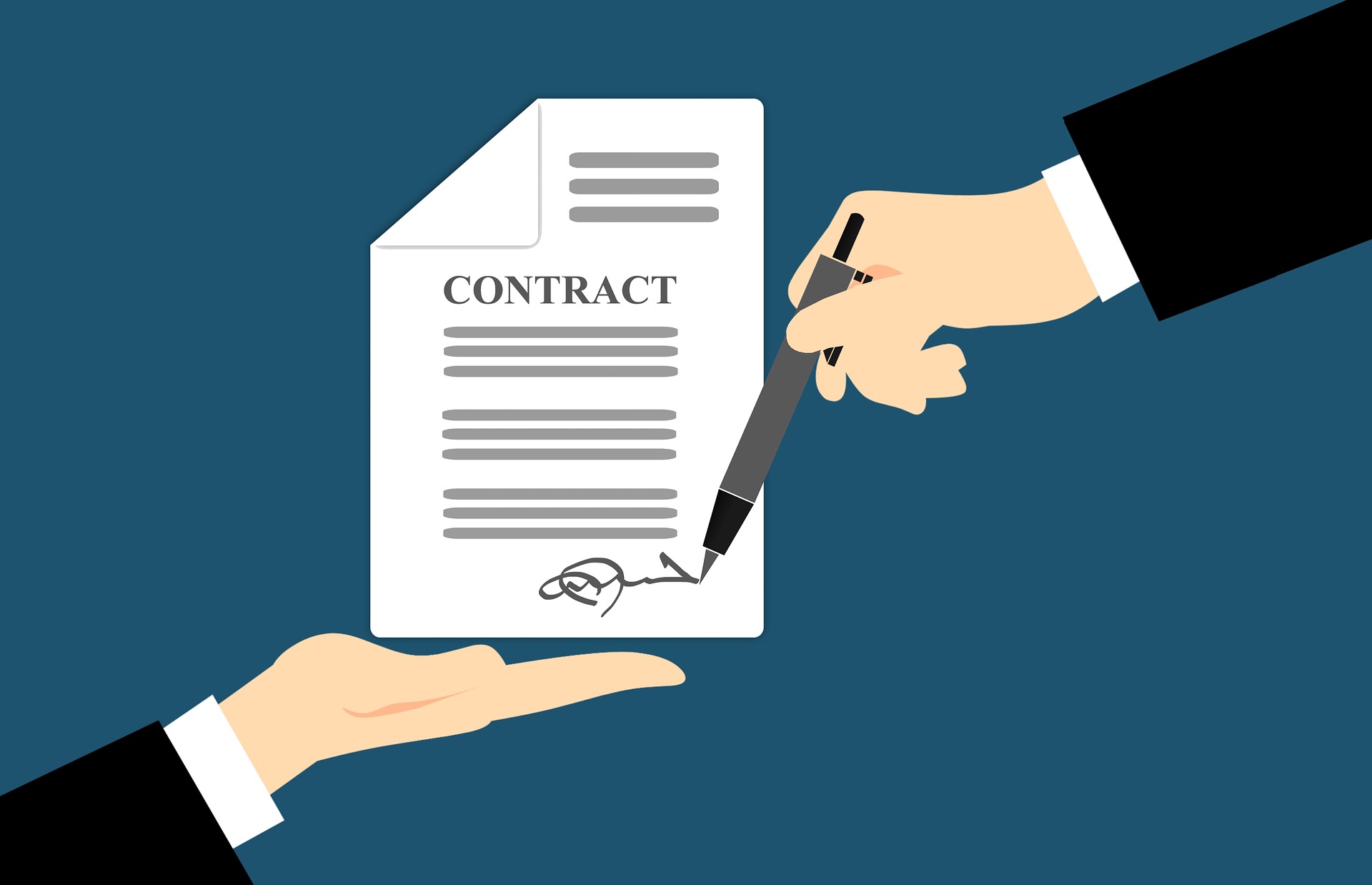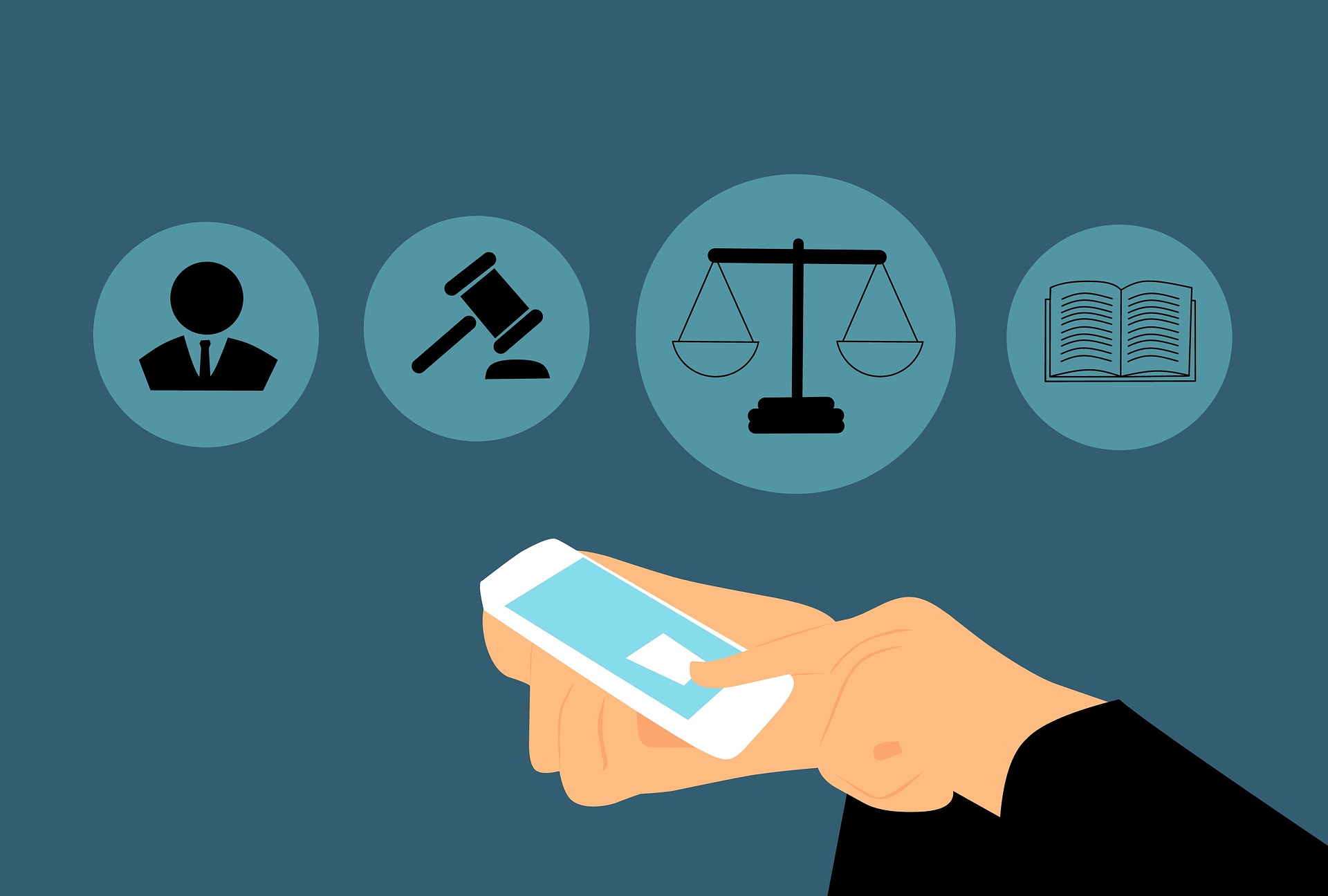How the Bar Association Can Help You Find a Criminal Defense Lawyer

Every state’s bar association offers basic services that the general public crucially needs. To illustrate, here is an example: Three felons live in different states, namely Georgia, New York, and Texas. Each of them needs a criminal defense lawyer, but they are struggling to identify one. If they find a legal professional through the Texas state bar attorney search platform, their consultation will cost a fraction of what a lawyer would normally charge. Similarly, the New York bar attorney search tool acts as an expanded legal marketplace. Meanwhile, the Georgia bar directory tells felons whether a lawyer had disciplinary problems in the past.
Having said all of that, not many people understand the critical role that bar associations play. While their referral services are well-known, only a few felons realize how much money it would save them (in comparison to working directly with an attorney).
Whether you are considering a criminal defense lawyer or already hired one, their standing with the bar helps felons avoid the nightmare that comes with picking an unethical or manipulative law firm. Above all else, you may even qualify for pro bono (i.e. free) legal services.
Some programs, such as the Texas state bar attorney search platform, work with defendants on identifying exactly what they need. Others, like the Georgia bar directory, only connect you with other referral agencies.
Meanwhile, the New York bar attorney search service will help you determine if their programs are available in your county. Otherwise, they will connect you with a local association or legal support entity.
The Bar Association: What You Need to Know
Initially, the Bar Association acted as an entity that brought together professionals in the legal industry. The organization advanced issues related to education and established ethical standards that members needed to follow.
However, as time went by, the bar evolved into an entity that governs and regulates practicing lawyers. In fact, throughout the United States, attorneys must the bar’s exam and the organization’s evaluation standards. Otherwise, they can’t get the license that they need in order to practice their profession.
Above all else, bar associations protect potential clients by monitoring attorneys’ activities and disciplining those who violate ethical rules. Moreover, they allow you to look up a specific lawyer’s background and history before you decide to hire them.
Legal Language
In short, the bar association is a key entity that can help felons in different ways. There are some key terms, nonetheless, that formulate and shape how bar associations operate.
- Bar Exam: Firstly, before a law degree graduate can officially offer legal services, they must pass the bar exam. Each state’s bar association formulates and administers this test. However, in some areas, passing one state’s exam may allow an attorney to practice law in several other locations.
- Bar Admission: After passing the test, the bar association admits the lawyer. That is to say: They allow them to get a license and practice law in their state.
- Bar Membership: Membership entails paying association dues and fulfilling responsibilities.
- American Bar Association: The ABA is a voluntary organization that operates on the national level. They offer the public, including felons who need legal representation, resources and services.
- State Bar Association: Each state has its own bar. Membership requirements, referral fees, and other factors will vary from one jurisdiction to another.
- Pro Bono: Attorneys and legal professionals use this term to refer to free services or representation. Certain people, such as low-income and elderly defendants, may qualify for no-cost support. In fact, the ABA’s rules make it mandatory for lawyers to volunteer 50 pro bono hours per year.
Some states have a mandatory bar. They require professionals to become a member of the association in order get a license and practice law. Examples of those include Arizona, Idaho, Nevada, Texas, and Washington D.C.
In other locations, prospective attorneys only need to pass their exam and attain admission into the state bar. Membership, however, is not required in Colorado, Florida, Nebraska, New York, and other states.
Referral Services: Choosing a Criminal Defense Lawyer That Suits Your Needs
There are certain problems that felons could run into when they look for a lawyer. In some locations, especially smaller towns and rural areas, you may struggle to find an attorney that specializes in your case type.

Figuring that out after paying the consultation fee will only make things worse.
In metropolitan areas, attorneys cost much more than the national average. What happens when a defendant can’t afford the fee, to begin with?
Felons are especially vulnerable and error-prone in this process. To illustrate, here are some eye-opening facts:
- Almost 87% of incarcerated Americans earned less than $15,000 during the two years before their arrest.
- More than half of them (51%) had no income throughout the same timeframe.
- Only 2% of the jail and prison population made over $50,000 during that two-year period. Meanwhile, the average U.S household income is just over $63,000 in a single year.
The bar association can help criminal offenders and felons avoid these pricy pitfalls. More specifically, referral programs will keep costs predictable and connect defendants with the right law firm.
Bar associations across all states offer this resource. However, some of them have more expanded tools and methods of support. A few examples can clarify this: The New York bar attorney search marketplace, the digital Georgia bar directory, and the Texas state bar attorney search and referral platform.
New York Bar Attorney Search Tools and Marketplace
The New York State (NYS) Bar Association has a referral program that acts as a legal marketplace. The Lawyer Referral and Information Service (LRIS) is available both online and via phone.
Low-income households and individuals can also get connected with a free or relatively affordable lawyer through the New York bar attorney search platform. This article will discuss this part in more detail.
As far as referrals are concerned, some counties in the Empire State have their own program that is similar to LRIS. Bronx, Brooklyn, and Queens are amongst them.
When it comes to fees, the New York bar attorney search service requires you to pay $35 for a 30 minute consultation with an LRIS-found lawyer.
The Georgia Bar Directory
Unlike New York, Georgia’s bar association doesn’t directly connect the public with legal firms. Instead, felons in the Peach State can find a criminal defense lawyer through the online Georgia bar directory.
Firstly, you would enter information about your case type (for example, an OVI charge, drug offense, violent crime, …etc.). Users may narrow down their search to a specific zip code or location.
After that, the Georgia bar directory shows defendants a list of lawyers that meet their search criteria. This digital tool also allows you to view whether an attorney is in good standing or if they have disciplinary actions against them.
Another option is to access a list of referral services that the are compliant with local rules. This is especially useful when felons don’t know how to use the Georgia bar directory or if their search results didn’t connect them with the right law firm.
Lastly, but certainly not least, the Georgia bar directory and attorney search tool allows you to find a criminal defense lawyer that offers pro bono or free services.
The Texas State Bar Attorney Search and Support Services
Just like New York’s association, the Texas state bar attorney search platform directly refers you to a criminal defense lawyer that specializes in your case type. In fact, Texans may even search for attorneys based on their level of education and certifications.
Additionally, the Texas state bar attorney search directory can refer you to local organizations that offer free or affordable services to low-income defendants.
Both Texas and New York have an LRIS tool, but their fees are different. To clarify, if you find a lawyer through the Texas state bar attorney search and referral program, your 30 minute consultation will only cost $20.
Doing so through the New York bar attorney search platform, on the other hand, comes with a $35 fee.
Above all else, the Texas bar (as well as those of other states) can help felons determine if they even need a lawyer. In case they don’t, the Texas state bar attorney search also provides defendants with free educational resources on how they can represent themselves and comply with the courts’ rules.
Did You Pick the Wrong Attorney?
Facing felony charges, in itself, is a daunting and incredibly stressful process. While a criminal defense lawyer should make things easier, choosing the wrong law firm is financially and mentally draining.
Luckily, nonetheless, different state bar associations allow you to access any legal professional’s record and their disciplinary history.
Going back to our examples, the Texas state bar attorney search tool allows the public to view if a lawyer had any complaints against them. In fact, you may even report unethical and dishonest law firms.
The Georgia bar directory shows this information when you initially search for a criminal defense lawyer. As a result, felons can choose a representative that is in good standing from the beginning. They don’t have to go through the costly trial and error process when they use the Georgia bar directory.
In general, however, each state’s association has its own rules on background checks and public records.
The National Lawyer Regulatory Data Bank
The ABA maintains information about lawyers’ disciplinary histories from across the country. Moreover, the bar associations of all 50 states (and Washington D.C.) share attorney records with the ABA.
Not only does the data bank show details about individual professionals, but this tool highlights important statistics and trends that defendants should be aware of.
Beforehand, the ABA encourages the public to go through their state bar’s records. After that, if someone can’t find sufficient information about an individual attorney, they can utilize this data bank.
Even though local directories, such as the New York bar attorney search platform, allow you to identify lawyers online, felons must send the ABA a written request to access the data bank’s records.
Because of this, the public should only resort to the ABA if their state bar’s directory doesn’t provide enough details.
Online Records
Unfortunately, some states don’t publish lawyers’ disciplinary online. Instead, people must contact the bar directly by phone or though a written request.
Equally as important, certain jurisdictions may remove disciplinary actions from an attorney’s record. This particularly happens after a certain amount of time passes by (such as ten years).
If this applies to where you live, utilizing the ABA’s data bank could provide you with more comprehensive details about a criminal defense lawyer that you are considering.
Professional Reputations
Bar associations tend to host workshops, meetings, and events that are open to the public. When a felon attends, they can ask about their prospective attorney to get an idea of what their colleagues say about them.
In short, a lawyer’s reputation is just as important as their disciplinary record. When an attorney engages with the state bar and regularly volunteers pro bono hours, their peers will appreciate that.
If you ask about an attorney at a bar event and other lawyers immediately know who they are, it most likely means that the said professional is ethical and community-driven.
Meanwhile, an inactive attorney whose name is unrecognized probably doesn’t participate in bar events very often. This doesn’t necessarily suggest that they aren’t a good option. After all, the attorney may have only recently attained their license or moved into the state.
However, when a lawyer doesn’t have a solid reputation, you may want to carefully examine their background before hiring them.
Pro Bono Services and Advocacy
At the end of the day, bar associations exist to serve the public and act as a bridge between consumers and the legal industry.
Not only do the ABA and state-level organizations enforce ethical standards, but they also support low-income and vulnerable individuals who can’t afford to hire a criminal defense lawyer.
Equally as important, bar associations work with legislatures and propose policy changes that improve the justice system.
Free Support
The ABA’s Rule 6.1 makes it mandatory for attorneys to offer a minimum of 50 hours per year of pro bono services. That is to say: Lawyers must provide this work for free (or at a really low cost) and offer it to low-income individuals or charities.
Some states may require legal professionals to contribute less hours. For example, lawyers in Washington State only need 30 pro-bono hours per year. New York, on the other hand, follows the ABA’s 50-hour guideline.
Because this is mandatory, the ABA or a state bar may discipline attorneys who don’t follow these rule. Needless to say, tools like the New York bar attorney search directory allow the public to know if a lawyer didn’t meet this requirement.
The same applies to the Georgia bar directory. The Texas state bar attorney search platform doesn’t just reveal legal professionals’ backgrounds, but they can help people determine if they qualify for free help, as well.
To clarify, before a felon tries to find pro bono services, they must determine if they qualify for them. If a criminal defense lawyer helps someone who earns $100,000 per year for free, as an instance, this doesn’t count towards their pro bono hours.
Firstly, only individuals who make less than 125% the federal poverty rate can qualify for free legal services. In other words, the courts will consider single individuals that earn a maximum of $15,000 per year as poor. The income threshold for a two-person household is $21,000 per year.
Yet income isn’t the only factor that determines your eligibility for a pro bono attorney. Disabled felons (especially veterans) can qualify for free or discounted legal help. Those who receive government benefits (such as Social Security Income, food stamps, or Medicaid) are also eligible.
Advocacy
Regardless of whether a state bar association is voluntary or mandatory, there are many similar organizations that focus on specific issues or criminal justice topics.
For example, legal nonprofits exist to support minority communities that are disproportionately impacted by certain laws or policies.
Equally as important, bar associations across the country, including the ABA, advocate for legal reforms. They support changing the way that the cash bail system puts low-income defendants in a disadvantaged position.
If there are voluntary advocacy or nonprofit groups that operate in your state or county, they will most likely offer free or discounted legal services to felons.
However, keep in mind that each advocacy entity specializes in specific types of cases, such as hate crimes, domestic violence against women, and drug-related issues.
The Bar Association: Here to Help
Your state’s bar, as well as the national ABA, provides the public with valuable resources and services. For a start, referral programs will make it easy to find a criminal defense lawyer that suits your needs.
As an example, the Texas state bar attorney search platform will let you narrow down lawyers based on their level of education, legal certifications, location, and area of expertise.
Equally as important, felons may identify if a law office has disciplinary actions against them, as well as other negative points on their record. For instance, the Georgia bar directory displays a list of licensed lawyers and whether or not they are in good standing.
Above all else, criminals could even figure out if they are eligible for pro bono (free) legal representation. The New York bar attorney search website, to name an example, connects the public with local entities that offer free or low-cost services. The Texas state bar attorney search platform does this, as well.
Going forward, felons should visit their state’s bar association website or contact them via phone. In turn, the public can get referrals, determine if they qualify for pro bono programs, and/or access the records of a recently hired lawyer.

At the end of the day, attorneys exist to handle your case while you rebuild your life. Choosing a wrong lawyer is just as stressful and exhausting as dealing with a whole new set of charges, in itself.
The bar association exists to ensure the former scenario and prevent the latter one from happening.




